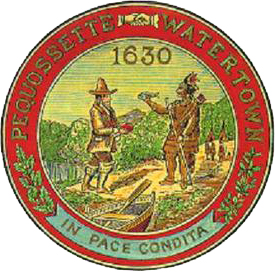
The following announcement was provided by the City of Watertown:
The City of Watertown took the final step on Sept. 21 in forming an affordable housing trust consisting of the new City Manager and six residents with expertise in creating and preserving housing for income-qualified households. The trust, authorized under state law to fund and engage in real estate activities to develop affordable units, held its first meeting on September 22, 2022.
“It is important that we start identifying sites where deed-restricted affordable developments can be built,” said City Manager George Proakis. “We plan to do outreach to the affordable housing developers in the area who may be willing to work with the City to provide the kind of housing we need.”
The Watertown Housing Partnership, which recommended forming the trust, will automatically dissolve in 10 days, with its powers and responsibilities automatically transferred. The Partnership has been instrumental in overseeing the City’s “inclusionary zoning” program, which creates deed-restricted affordable units in otherwise market-rate developments.
“Our housing partnership laid a great foundation for this new housing trust,” said City President Mark Sideris, “and now it is time to take it to the next level with a body that has the expertise and means to nurture 100 percent affordable projects that combine some local money with significant federal and state funding.”
Affordable housing can benefit households with a range of incomes, depending on the specific project and its funding sources. While many federal and state programs subsidize households with incomes below 60 percent of area median income, other programs go up to 80 percent or (in the case of Community Preservation Act funding) can go up to 100 percent of area median income. Watertown adopted CPA in 2016 and has a Community Preservation Committee that has begun to make funding awards.
In addition to City Manager Proakis, there will be six citizen trustees, all Watertown residents, who bring extensive experience in affordable housing and related fields:
• Cliff Cook has worked in Cambridge’s planning department for almost 20 years in a variety of management roles and managed an affordable housing grant portfolio for the state for three years;
• David Leon, former Executive Director of Watertown Community Housing (now Metro West Collaborative Development);
• Jill Hyde is Deputy General Counsel at Beacon Capital Partners, LLC and previously served for 5.5 years as General Counsel of Trinity Financial, Inc., a major affordable housing developer;
• Helen Oliver served as a Vice President at State Street Bank for seven years, specializing in affordable housing tax credit transactions;
• Leo Patterson, a Massachusetts-registered architect with over 20 years of experience, is a Senior Associate at the Boston office of Perkins Eastman; and
• Zoe Weinrobe has been Director of Real Estate Development at 2Life Communities for 6 years, and previously worked at Recap Real Estate Advisors and Urban Edge Housing Corporation.
The City Council adopted a 5-year Housing Plan in March 2021, with formation of a housing trust among its strategies. The Council authorized the Trust’s formation at its Nov. 23, 2021 meeting. After a robust interview process to identify trustees with the required expertise, the Council confirmed the six trustees. The final step in forming the trust was recording the declaration of trust at the registry of deeds.
It’s wonderful to see this Housing Trust coming together and the expertise of the citizen trustees is most impressive. Watertown is fortunate to have such a talented group coming together to work on this important issue. I’m sure we will all look forward to seeing the results of this important effort.
“Deed-restricted affordable units”? Where will they find the space, and could one be built next to one of the new $1,000,000 duplexes?
Wonderful news. Great talent on the Housing Trust and the leadership of our City Manager Proakis gives us hope. Now let’s take a look at single use commercial properties that need to be reassessed since the covid changes in work systems and see if they can be used for affordable housing. It would be great if some small part of affordable housing goes in the direction of affordable live-work situations for artists that might include some gallery, studio, and performance spaces accessible to the viewing public.